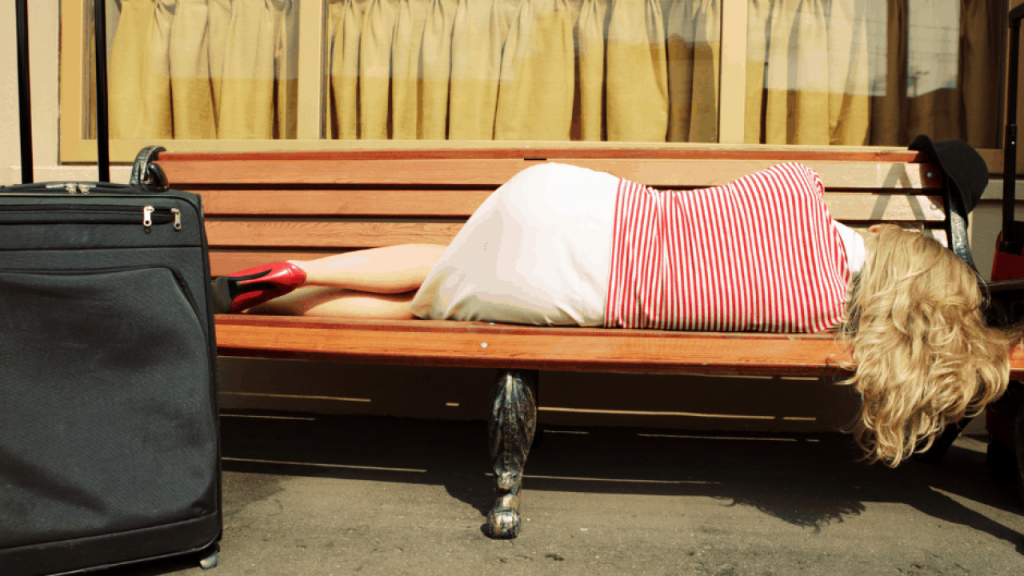Contents
It is a very usual outcome of long travelling. In addition to adventure and exploration, travelling accompanies anxiety and fatigue. Travelling often leaves a person both physically and mentally burnt out. It is essential to give yourself a much-needed break to re-energize.
Travel fatigue can occur during the trip, and it may also happen post long trips. In both cases, the desire to rest and re-energize is natural. If you are fond of travelling, you must certainly understand the symptoms, causes, and fixes of travel fatigue.
Travel Fatigue: Why Does It Occur?
There are many reasons for it, but more significantly, the brains and the body both stay active and alert for a long time during a long trip. This leaves both mind and body exhausted. It is essential to get it fixed to keep going during a long journey and even after the trip to get back to routines smoothly.
Causes Of Travel Fatigue
Many factors collectively contribute to and cause travel fatigue. Knowing these causes can help avoid such issues and better deal with these causes to avoid post-travel fatigue.
1. Hectic Travel Schedules
Travel fatigue is more severe when travel schedules are more hectic. It is very natural to get excited and overschedule yourself. To get most of your trip many times, the travel schedules are very rigid with the least flexibility.
This is the most common cause of travel fatigue. The tight travelling schedules barely leave you with time to get yourself a break and replenish your energy. Try to slow down a bit and take care of yourself. This will help to avoid post-travel burnouts.
2. Sleep Deprivation
It is a significant cause of travel fatigue, and in most cases, irregular sleep patterns and lack of sleep result in travel fatigue. Never oversleep and rest excessively during travelling. The best way is to accommodate rest and sleep time in your travelling schedules.
Never neglect when your body requires rest. Allow your body to take a much-needed nap to re-energize. The fresh and active mind and body are better able to explore and enjoy themselves during long travelling.
3. Disorganization
Travellers who do not plan or schedule their trip are more likely to experience travel fatigue and quite sooner. It is essential to get organized and follow a proper action plan or schedule to avoid undesired anxiety and fatigue accompanied by travel.
Symptoms Of Travel Fatigue
During travelling, if a person experiences any of the below-mentioned symptoms, then it is an obvious indication that he is probably experiencing travel fatigue.
1. Excessive Alcohol Consumption
If you are new to extended travel, you are more likely to self-soothe the body with the help of drinking. Though it is not a great way to deal with travel fatigue, excessive drinking is a sign that your body is experiencing fatigue.
Excessive drinking may aggravate fatigue, as it is also experienced during alcohol hangovers. Drinking too often can have serious health outcomes over some time. To avoid serious health outcomes of drinking alcohol, it is better to look for ways that help to keep it in control.
2. Feeling Stressed
There are many ways the body can signal and indicate that it is under stress. During a long journey, if you observe signs of insomnia, anxiety, and inability to focus and concentrate, it is clear that your body is experiencing travel fatigue.
The best way to deal with it is to give you a break. You can look to extend your trip for a day or two. During this time, allow your body to get enough rest. If not possible, then the other good option is to prioritize your schedule and leave the rest.
3. Binge Eating
Travelling and exploring new destinations also includes local food exploration. It is a fun and exciting aspect of travelling. Tasting and enjoying local food is a great way to connect deeper to the place. It also allows us to experience new food customs and traditions.
However, if you are overeating, then it might also possibly signal travel fatigue. Often binge eating during a long trip is a body’s natural response to fatigue.
4. Exhaustion
It is widespread to feel exhausted after a long trip. The best way to deal with it is to get some rest. However, persistent exhaustion is probably the symptom of travel fatigue. Exhaustion is when you stay in bed and do not feel energetic and fresh even after resting for a while.
To deal with it more effectively, you can look to eat healthily. Managing moderate exercise can also help to lighten up your body. You can also look to use several self-meditation techniques to boost blood circulation around the brain and body.
5. Reduced Immunity
Exhaustion and travel fatigue also result in reduced immunity of the body. It is due to reduced body immunity that a person gets sick after a long trip. In many cases, reduced body immunity is a sign of travel fatigue.
During travel, you are more exposed to bacteria and viruses. The best way to deal with it is to ensure that you are fit. You can look to take immunity-boosting supplements with you during prolonged travel. Take precautionary measures to maintain hygiene.
6. Negativity And Self-Criticizing
If a person is experiencing negativity right after a long trip and is self-critical, it is also the indication that a person is going through intense travel fatigue. Self-meditation such as yoga and moderate exercise are very effective means to deal with it.
Meditation and exercise help to boost mood with the use of stress-reducing hormones called endorphins. Not only it boosts mood, but it is also a great way to feel calm and more relaxed.
Take Away
Travelling can be adventurous, but sometimes it results in fatigue and anxiety. There are many causes of it. Travel fatigue can be diagnosed based on several signs and symptoms.


